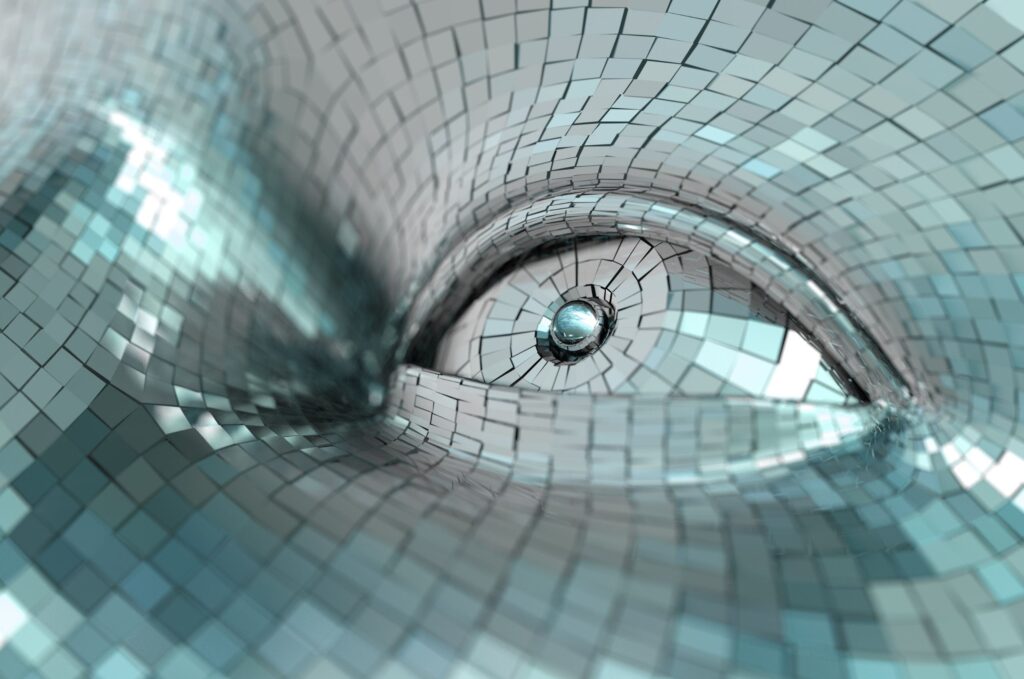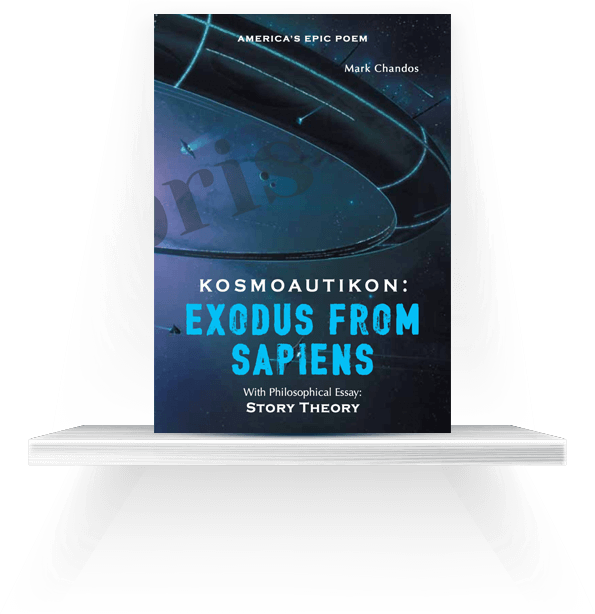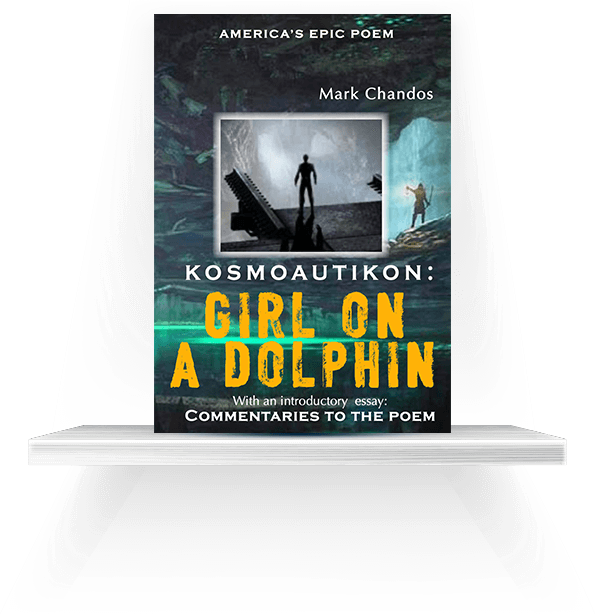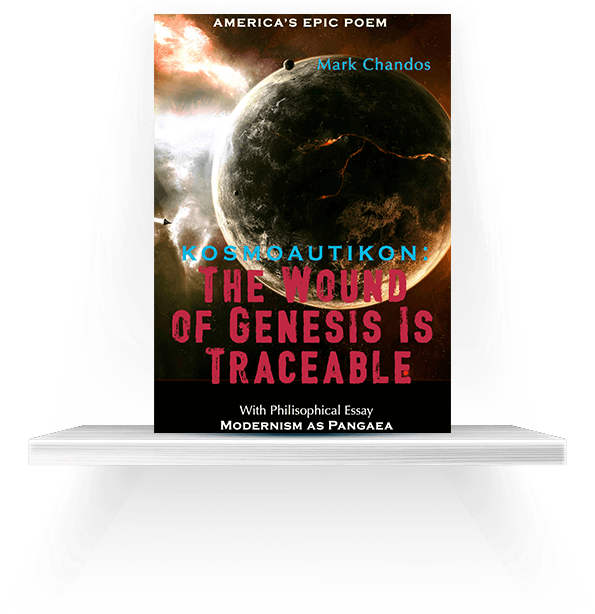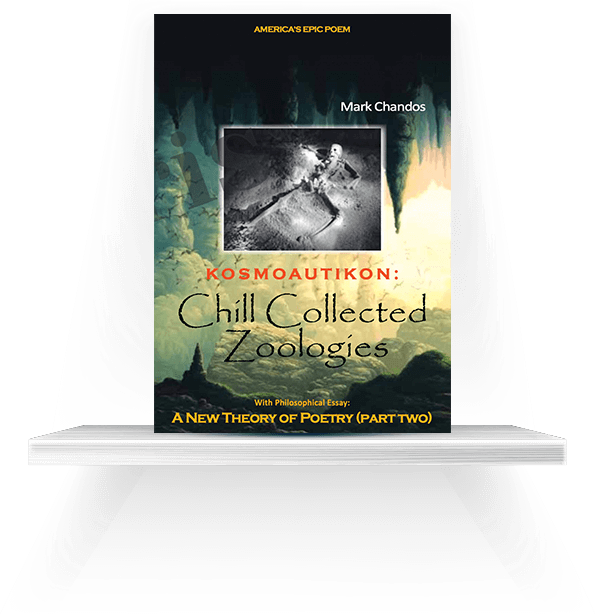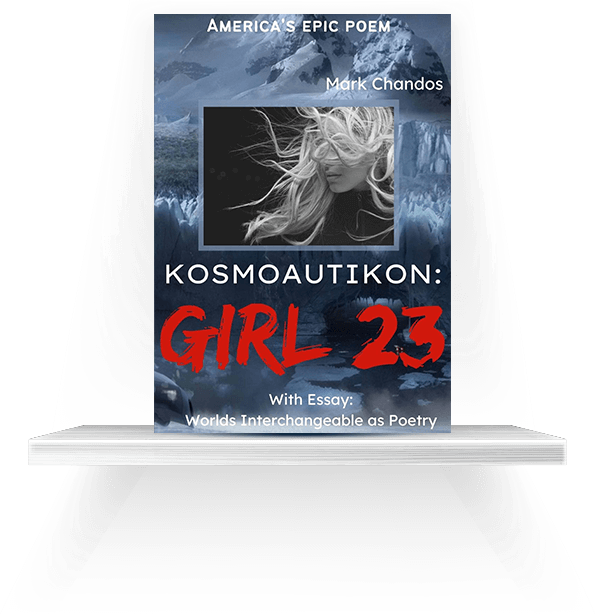Story Theory is the philosophical clarity permitting modern man to renounce scientism as a supposed choice between a physical reality (of material science) and a spiritual reality (of inward poetry, myth, faith). It is easy to point out their exact similarities. Each is an idea within the mind, each uses symbols to make plausible order, makes texts of notable speech from chaos. Modern science and poetry, religion and romance are all products of an imaginative, terraforming mind. Each is a form of epic poetry. That is, each tells an epic narrative with high symbology and a memorable voice. Science and poetry are thus exactly equivalent linguistics.
This is how it works. Science detects empirical “truths” consistent with the codex of scientific speech. Medicine finds disease and disorder consistent with medical theory. Poetry finds empirical “truths” consistent with the codex of prophetic speech. Romantics find empirical “truths” consistent with the codex of traditional uses of romance (and monogamy!).
All that is required to make empirical tests of the reality of each set of idiomatic speech is to accept without question the linguistic coding of the same self-referent idiom. In the language of romance, the lover does not question the excellence of the beloved – even if the beloved appears ugly to all others. In the codex of scientism, the PhD does not question the competence of the scientific method – even if the data clearly has a political bias, a use as a weapon of mass destruction, or a false sets of data chosen with prejudice.
The point? There is not one linguistic truth exponentially more superior to all others. Each codex rises to the level of consciousness that it seeks. Romance verifies the claims of monogamy. Scientism verifies the supremacy of materialism. Modernism justifies technology, mindless proliferation of populations, and capitalistic wealth. In effect, therefore, there is only a choice of self-fulfilling linguistic data points, that, with maturity, become so self-referent (so enchanted) that they find and manufacture their own “truths.” The taxidermists see only the outlines of taxidermy. The romantic sees only the excellence of the beloved (even if he is a convicted murderer in a prison) – and so on. That is, all possible worlds a man may make can only be worlds made up of poetics. This is the case for poetry in every generation. This is Story Theory.
The modern will protest. How can so opposite systems of “reality” be claimed equally as “truth?” How can scientism and romance (for example) – or math and voodoo – be equally valid means to human information? Herein lies the challenge of Kosmoautikon. Speech is the only human “house” – and all humans in the “house of speech” are susceptible to the urge of enchantment.
Linguistic specialization operates as a self-referent mental mapping. Ideas allow the eyes to function – eyes in a senseless vacuum can make no logic from forms of light. Until there is a limit of mental spectrum, a focus of speech, all objects overwhelm the eye with no meaning. Medical doctors detect disease – and diseases are consequently very real (empirical) to materialist thinkers. Taxidermists detect patterns and facts of taxidermy. Religion detects examples of actual faith healings – inward, introspective union with spiritual demonstrations of power. Romance verifies the validity of “true” love – not actually existing in nature. Troubadours only ever existed within the construct of ideological romance.
Who would deny with sobriety that science or math, voodoo or romance are anything if not a self-referent, hermetically sealed linguistic disciplines? They each require years of specific and controlled study. We note that mathematics is an idiom (and not a universal, eternal truth) when we verify that every theory in theoretical mathematics is justified – only by its own proofs. So far from math being empirical, Kurt Gödel proved in the 1930s that any system of mathematics contain propositions which can neither be proved or disproved. Theorists may only cherry-pick any possible sets of data to confirm their thesis to the uniformed public.
No linguistic idiom is organic or intuitive in nature (certainly not the monogamy of romance). Each, being artificial, has to be learned. No person is born a scientist, or a voodooist, or a romantic – that is, we have to be deeply conditioned with poetic symbols to believe in an idiomatic response to any particular phenomenon. Any human linguistic misprision is a deeply learned system.
The differing results of separate linguistic ideation patterns are the “unknown quantities” that no philosophy previously attempted to explain. Since men alternately have used science, math, romance, or religion to designate empirical evidence of life, I had to discover how opposites may be united in human usage. There had to be a way to account for this actuality. Linguistic disciplines (listed above) have only one element in common: each uses symbols to make order from apparent chaos. The base of all human existence, thus, is a school of poetics.
Why poetics? Because symbols are used to make human order from chaos. As a metaphor, then, we may say the world proceeds out of the mind of the observer as steam from a hose. That is, it does not matter what you see – it only matters how your mind organizes it. There is no actual reality that we record, we only make a perception within an illusion of perception.
Poetry cannot be divided any further into more basic components. We test this when we discover we cannot alter a line from Homer, Milton, or the Shakespeare poet. Words cannot be deconstructed into non-words. No great poem can be improved with modification. We can only diminish the electric charge of a strong poet by any alteration. Poems are irreducible. By this test, poetry is thus the supreme human idiom laying at the origin of human existence.
It is for this cause we say that the human singularity is poetry (symbol making). This “solution” to all linguistic “opposites” – that is, how science and poetry are equal linguistic sets of proofs, etc. – is thus the philosophy of Story Theory.
What is the final logic of Story Theory? There is no “empirical” reality somehow hanging in space as an object independent from a human mind. There is no single objective reality adrift someplace in the universe waiting for men to correctly discover its location with his outward looking eye. (Yet this psychosis is exactly what the faith of scientism professes – that we must look outside of the Earth with telescopes to observe the “reality” of existence). In fact, the only possible reality a human can detect is an inward, artificial linguistic reality; all possible worlds are merely emanations from within the conscious mind. All that we may meet at the Horsehead Nebula is our own mind. That is a conclusion.
The point is all phenomena within consciousness are imaginative emanations from the human mind – that no object is somehow separate from the human mind. It means that all observed phenomena are the results of a human interpretation – using symbols. I include in my scope objects with the “apparent” mass and solidarity of stars and planets – as well as all perception of human peril, nemesis, and disease. It is a philosophy that will test the reader’s zeal for clarity.
Since there is no objective reality outside of a self-referent linguistic mapping, there is no “outside” at all. All observed phenomena “outside,” including other persons, stars, and planets, are only projections (from within) of our linguistic assumptions and constructs of beliefs. There can be no “outside” since everything perceivable by the conscious mind is already contained within consciousness. We can test this. If there was something outside of consciousness, how could you perceive it? It is an impossibility. “Outside” is a fallacy. This is a clarity of Homo sapiens that Story Theory dares to make.
Only a philosophy that reduces all –isms to their linguistic structure may bridge the gap between profoundly divergent interpretations of consciousness (as science and religion).
Poetry thus, with this insight, is as superior a form of information as academic science. Being forms of mere linguistics, all high idioms – as science, romance, religion, etc. – all schisms of social speech – are able to fold into each other—as equals – since all human ideas are poems. The result? All we know are the poems we have learned – even if this poem is called science, romance, shamanism, Tengrism, or Islam.
We will need a cadre of strong poets to verify this superiority. Are you up to this task?

